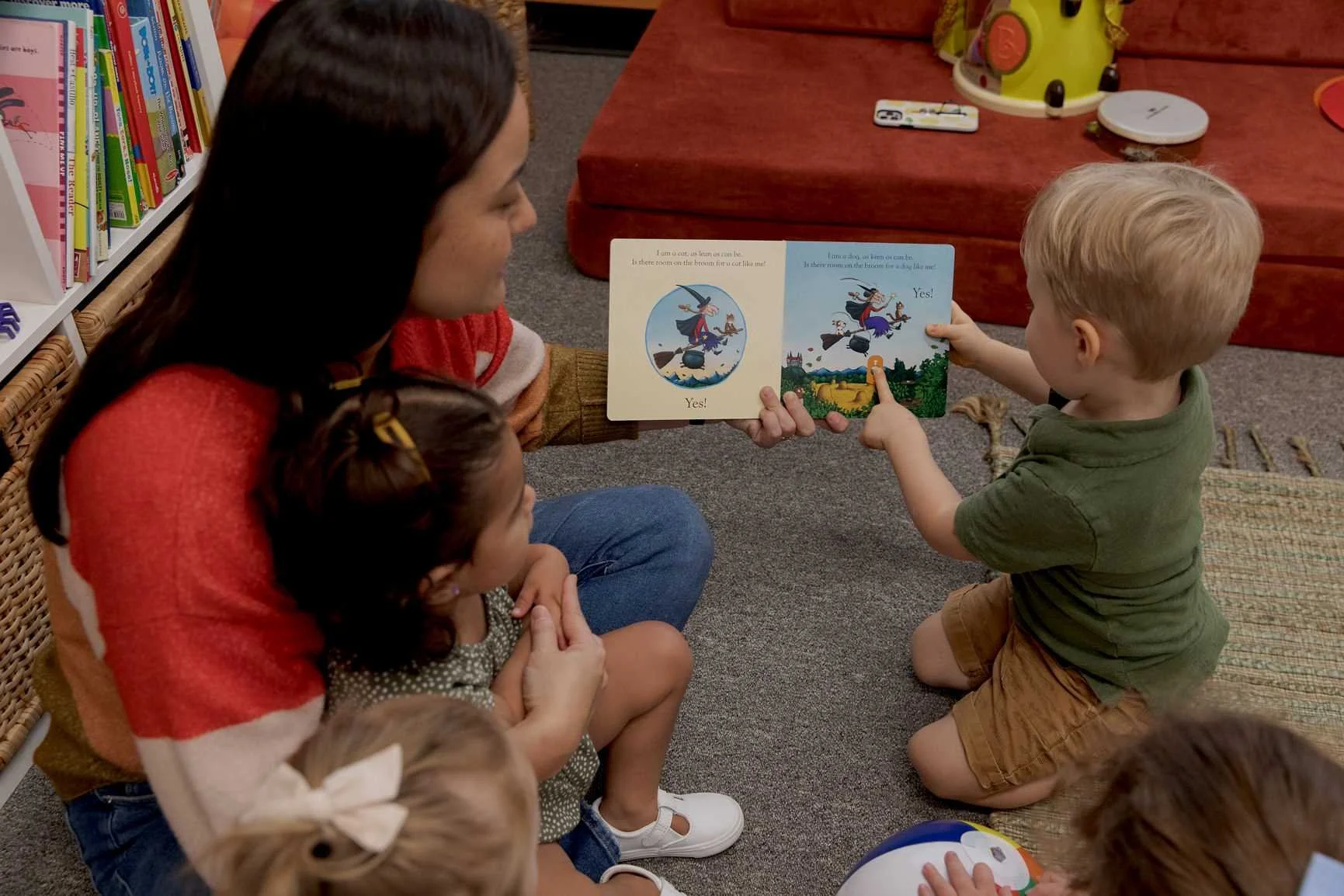Reading Therapy
More Than a Private Reading Tutor: Speech-Language Pathologists as Reading Intervention Specialists & Dyslexia Reading Specialists
Our approach to literacy is based on the key components of the science of reading: phonics, phonemic awareness, vocabulary, fluency, and comprehension. As speech language pathologists, we are uniquely positioned to incorporate these components into literacy instruction to ensure that a child is able to not only sound out words, but develop strong reading comprehension skills for success at school and in their community.
Literacy for Preschoolers: Pre-reading skills
Before starting kindergarten or beginning to learn how to read, children need to establish many pre-literacy skills. These skills are the foundation for building decoding and reading comprehension skills, in order to become efficient and successful readers. When these pre-literacy skills are not well established, children often have difficulty learning to read and write at the rate expected, and may fall behind in academic achievement. If your child is having difficulty learning to read, or acquiring these pre-literacy skills, they may benefit from specialized intervention with a trained reading professional.
Kindergarten Readiness
For our preschool students, we begin by laying the foundation for literacy success with phonological awareness, alphabet knowledge, and phonics lessons. While phonics instruction is a critical component of our approach we also incorporate language-based activities to ensure that vocabulary and grammar skills are strengthened.
Reading Intervention for Elementary students & Middle School Students
For school-age students we start by assessing reading fluency, reading comprehension, spelling, and handwriting. From there we create a structured plan to systematically master reading and spelling concepts appropriate for the child’s grade level.
Early Signs of Reading Difficulties
Some children may show early indicators that they could benefit from targeted reading support. These signs can appear before formal reading instruction begins, including:
Difficulty recognizing letters or connecting letters to sounds
Trouble rhyming or noticing word patterns
Limited vocabulary or challenges expressing ideas verbally
Slow or inaccurate reading for age
Difficulty remembering or spelling words after repeated exposure
Identifying these signs early allows us to implement strategies that support reading growth before small challenges become larger gaps.
Causes of Reading Difficulties
Reading delays may be caused by speech issues such as phonological or language disorders, underlying literacy disorders like dyslexia, attention deficits, or lack of explicit instruction. Difficulties with speech sound production, verbal comprehension skills, and expressive vocabulary early in life may be indicators that a child will benefit from specialized instruction to develop strong reading and writing skills.
Dyslexia Therapy
If your child has a dyslexia diagnosis, we can design an individualized plan to meet their needs. We provide 1:1 reading instruction to target phonics, decoding, comprehension, spelling, and other language skills like making inferences. Those with dyslexia are often multisensory learners, and benefit from engaging visual, auditory, kinesthetic, and tactile pathways in order to memorize new concepts. When applicable, we align our objectives with a child’s phonics, spelling, and reading comprehension IEP goals
Schedule your complimentary consultation.
We want your child to be healthy, functional, and happy. If your child wakes up not rested, appears to be struggling with attention, self regulation, emotional regulation, communication, or you’ve recently received a diagnosis, or your pediatrician, teacher, or other professional is recommending speech therapy, book a call today to learn more about how we can help.
Speech Therapy Services








